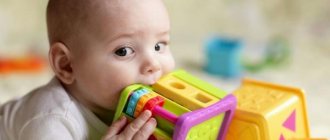What to do if you are constipated
First, you need to understand exactly what constipation is. Some mothers believe that if their child has not had a bowel movement for three or four days, then this is a serious problem that needs to be addressed by a doctor. In fact, this is not entirely true; in some children, infrequent bowel movements are considered normal, and if the general well-being does not suffer, the baby is cheerful, eats and sleeps well, then you can put your worries aside. (How many times should an infant poop)
True constipation is a condition in which the baby, making all his efforts, that is, pushing, straining and groaning, cannot get rid of the accumulated feces. At the same time, he cries, presses his legs to his stomach, worries, and refuses to feed.
The inability to have a bowel movement can be a concern either every few days or every day; it depends on the physiological characteristics of the body and on what you feed the baby - breast milk or formula.
Clickable
With constipation, hard stool is released, sometimes mixed with mucus or streaks of blood. During defecation, the baby cries, his face turns red from the effort, severe anxiety appears, and this continues until the intestines are completely emptied.
After the first constipation, you should not immediately run to the pharmacy and look for a laxative for newborns; any medicine is still a chemical and is unlikely to be useful for the baby’s body. First you need to understand the child’s diet and eliminate any identified errors.
Pediatricians often advise young mothers to adhere to the following recommendations:
- If the baby feeds on mother's milk, then you need to be especially careful when planning your diet. It is not recommended to eat strengthening foods; the diet should be varied with plant components (Nutrition for a nursing mother).
- A child, both bottle-fed and breast-fed, needs additional portions of boiled water. Every day, between feedings, your baby should be given a few sips of water from a small spoon.
- The baby should move actively - daily exercise and light tummy massage have a positive effect on the condition of the intestines. Placing it on your stomach also helps with constipation.
- Babies in the first months of life who have problems with stool should be given dill water or a few drops of prune decoction.
If all the measures taken do not help, then you need to visit a pediatrician - the doctor will assess the child’s general condition and suggest one of the safest laxatives for newborns.
Recommended and approved laxative medications
Laxatives for children in the first months of life are available in several dosage forms and most often these are syrups, solutions or suppositories.
Most often, in case of rare problems with bowel movements and to provide quick help to the tummy, pediatricians advise resorting to the use of rectal laxative suppositories; they can be purchased at any pharmacy.
- Rectal suppositories act at the local level, so they do not have a negative effect on the entire body as a whole. Suppositories with glycerin are considered the safest; they can be used from the first days of the baby’s life, so the expectant mother can stock up on them in advance. For newborn babies with constipation, you need to use 1/8 of the suppository; for children one month and older, the dosage is doubled. Laxative suppositories soften stool, making bowel movements painless and easy. You just need to remember that any medicine is used only in extreme cases, otherwise the intestines will get used to working with the help of its stimulation.
- Syrups and solutions. The pharmaceutical industry produces a wide variety of products to facilitate bowel movements. Moms need to remember that they need to choose only those that indicate the child’s age and have full instructions.
- Prelax - the main active ingredient of the syrup is lactulose, which improves intestinal motility and has a positive effect on its microflora. Prelax is also used as a prophylactic against constipation; the effect of its first use begins to appear within an hour. More about syrup
- Duphalac drug refers to laxatives produced on the basis of natural whey components. Delicious syrup can be given to your baby from the first days of life; you need to remember that the maximum effect from its use most often develops on the next day. In the first days of use, the baby may experience increased flatulence, but after a few days it usually goes away. Duphalac has a positive effect on the normalization of intestinal microflora, this leads to stabilization of its functioning. Article about Duphalac
- Normolact is another lactulose-based laxative. The drug is started with high doses, then when the desired effect is achieved, they are gradually reduced. The medicine can be used for a long time.
- Microlax is a new generation drug that acts as a microenema. The effect of its use comes quite quickly, the only thing that stops many mothers from buying it is the fairly high price. Details about Microlax - instructions for use, pros and cons, price
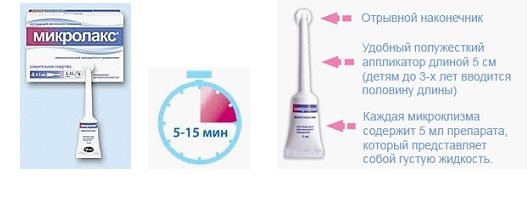
Self-selected medications for constipation in newborns should be used as an emergency treatment only. If there is frequent constipation, the baby's parents should consult a doctor, this will help identify some hereditary or congenital intestinal diseases. If there is constipation in the first weeks of a child’s life, young mothers should not panic - the baby’s body adapts to the changed living conditions and adapts to food.
Video: What to do if your baby is constipated
Constipation is a common bowel movement disorder among all age groups, including children. Modern pediatrics effectively diagnoses serious disorders up to a year. If a baby has problems with bowel movements, parents should make sure that there are no serious problems. If constipation remedies for babies help cope with the problem, parents have no reason to worry.
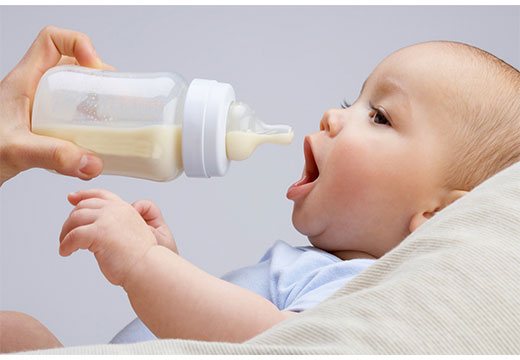
What to do if a child has constipation and in what cases to treat
How to treat constipation in a child and what modern and effective remedy for constipation can be given to a little one without harm to his health? What to do and how to choose the right medicine for constipation for your child will be discussed in this material. Every tenth baby suffers from constipation. But those babies who feed exclusively on mother's milk practically face such a problem if there are no birth defects in the gastrointestinal tract. Babies should have a bowel movement every 12 hours. If it is not possible to breastfeed a child and artificial nutrition is used, then he will have bowel movements 2 times less often. Before choosing any constipation remedy for your child , be sure to consult with your pediatrician. It is quite possible that to solve the problem it will be enough to normalize the functioning of the intestines with the help of an appropriate diet and proper nutrition. The mother should look not only at the frequency, but also at the quality of the baby’s stool. The stool should be runny before the first feeding is introduced. In children after 28 weeks it may become thicker, sausage-shaped, but does not lose its softness.
The culprits for constipation in a child can be: food containing a lot of protein, insufficient amount of liquid in it, preference for food with chemical elements and lack of natural products. Neuropaths and children with physical inactivity often suffer from constipation; a dulling of the reflex to bowel movement occurs when the situation or climatic conditions change. A properly selected diet will help your child forget about constipation - medications to treat the disease are needed only in extreme cases. Rice and semolina porridges, jelly, compotes, pureed soups, chocolate, coffee and strong tea slow down peristalsis and have an astringent effect. Vegetables, black and bran bread, fruits, fermented milk products, oatmeal, honey, juices from vegetables and berries, various jams and porridges of a coarse consistency will help normalize peristalsis. Do not start treating your baby for constipation until you are sure there is a problem not related to diet. Find out what exactly caused the problem in the developing organism (be sure to take your baby for examination to a pediatrician), and then choose treatment tactics based on the child’s age. Most often, infants experience constipation due to intolerance to a particular product. When you understand what kind of food causes constipation, just stop giving it to your baby. If a child drinks mother's milk, she will have to reconsider her diet. With lactase deficiency, the child’s body lacks (or is present in too small a volume) the lactase enzyme, which should break down lactose. The baby is simply not able to absorb milk sugar. On the recommendation of a doctor, lactose-free artificial nutrition is prescribed, which is made on a soy base. For constipation, children are often prescribed Lactuvit, which contains a disaccharide of synthetic origin - lactulose. It contains particles of fructose and galactose, which help the main substance pass through all parts of the intestine and begin to act in the colon. What to do if your child has constipation quite often , what remedy for constipation is the most effective and harmless for the child’s body? Below we will describe in detail how to treat diseases that cause frequent constipation, which medicine for constipation is most harmless for young children and how to organize proper nutrition for a child suffering from frequent constipation. Before giving your child medicine for constipation , be sure to consult with your pediatrician, who will help you organize comprehensive treatment and create the necessary diet.

what remedies for constipation will help relieve a child of problems with stool and how to treat constipation in children under one year of age and older. What to do if a child experiences constipation very often and a proper diet does not help solve the problem?
Be sure to seek help from your pediatrician - it is quite possible that your child requires a comprehensive examination and diagnosis. Next article: How to get rid of constipation with folk remedies
Go back to main page
ALSO FIND OUT...
| Comments | Add new | Search |
Children's Portal: Home Page
3.26 Copyright (C) 2008 Compojoom.com / Copyright (C) 2007 Alain Georgette / Copyright (C) 2006 Frantisek Hliva. All rights reserved."
The following materials:
- Jaundice in newborns Treatment with modern means This material will help you better understand how dangerous jaundice is in newborns and what treatment...
">Symptoms of jaundice in newborn babies
- Seizures in the corners of the mouth Treatment Today we will tell you in detail how seizures appear in the corners of a child’s mouth, what causes contribute to the development of inflammation...
“>How to treat lip jams in a child
- Stuttering in children Treatment The topic of this material is stuttering in children and methods of treating this disease with modern medical and time-tested people...
“>How to get rid of stuttering at home
- Bad breath Causes From this material you will learn how to effectively deal with bad breath in a child, what preventive measures and...
“>How to get rid of halitosis in a child
- Chronic constipation in an infant. How should parents act correctly if constipation in an infant becomes chronic, what modern...
">Folk remedies for constipation in infants
Previous materials:
- Constipation in children, treatment and prevention. Many mothers have encountered the fact that it is difficult for the baby to “go big”, which affects the physical and emotional…
“>How to get rid of constipation using folk remedies
- Acute toothache Folk remedies or painkillers? How to eliminate tooth pain, how to choose the most suitable painkiller about...
“>How to get rid of toothache quickly?
- Frequent hiccups in newborns The reasons for frequent hiccups in infants can be very different, but usually the baby hiccups due to hypothermia or not quite right...
“>How to get rid of hiccups quickly?
- Urinary tract infection in children Treatment In this material we will talk about what infectious diseases of the urinary tract exist in children...
">Symptoms of urinary tract infection in infants
- Deviated nasal septum Operation In this article we will consider the question of how to eliminate a deviated nasal septum in a child and in what cases…
“>Elimination of a deviated nasal septum in a child
- Treatment of dental caries in children From this material you will learn how to properly organize the treatment of dental caries in children, what deep, milky and…
“>How to treat deep dental caries in a child
- Conjunctivitis in children Treatment with modern methods In this material we will tell you what is important to do first if a child has…
“>How to properly treat conjunctivitis in a child
- Laryngitis in children Symptoms and treatment with folk remedies How to cure laryngitis in a baby at home, what types of laryngitis exist and what are the symptoms...
“>How to treat acute laryngitis in a child at home?
- Migraine in children Symptoms and treatment How to treat migraine in a child, which headache medications are effective and at the same time safe for children, which...
">Pills and traditional medicines for the treatment of migraines
- Thrush in children Treatment and prevention How does thrush (candidiasis) occur in children and what can cause the development of this disease, what are the symptoms...
">How to treat infantile thrush
- Infectious mononucleosis in children In this article we will look in detail at what symptoms are typical for mononucleosis in children and what treatment for mononucleosis and...
“>How can mononucleosis be cured in a child?
- Chronic and allergic rhinitis. How to quickly cure a runny nose In this article we will tell you how to quickly cure a runny nose in a child and how to…
“>How to quickly cure a runny nose in a child
- Runny nose in children Treatment at home In this article you will find information on how to effectively deal with a runny nose in a child using modern traditions…
“>We treat a child’s runny nose at home
- Laser vision correction and vision restoration using eye exercises With the development of information technology and the advent of new computer technology…
">Children with visual impairments
- How to treat a runny nose in a child Today we will talk about how to successfully treat a runny nose in a child, what types of runny nose there are and whether it is possible with the help of folk remedies...
“>How to get rid of a runny nose quickly
Next page>>
Review of products for newborns
Analyze your diet if you are breastfeeding. During lactation, the mother needs to follow a diet and exclude allergenic and fixative foods. Use more fiber and olive oil in your diet so that the process of feeding a baby is stress-free for both.
Regardless of what type of feeding the baby is on, add a few teaspoons of water to the baby.
If the baby is calm, active, the tummy is not tense and not swollen, give the newborn a belly massage for constipation. A pleasant procedure will provide physiological and psychological comfort to the baby from the mother’s affectionate touches. Intestinal peristalsis is activated, stool moves faster to the exit. Using gentle circular movements clockwise, stroke the tummy with your palm. Using movements, we draw the letter P, pressing the palm at each point. Press your legs against your tummy several times. We place the baby on his tummy. We stroke from the neck to the buttocks. Massage should not be performed after feeding, when the newborn is capricious and not in the mood. The procedure is considered an excellent prevention of gastrointestinal problems. Spend no more than 10 minutes per session every day.
Suppositories with glycerin or sea buckthorn oil have a gentle relaxing effect on the rectum. They are affordable, natural and safe for small children. Before you decide to give your child an enema, try using laxative suppositories first. Packaging is available for adults and children. If you have candles for adults, cut off an eighth for a newborn; for older ones, increase the volume twice. After administration, the candle begins to melt, releasing the active substances. The product quickly helps, having an irritating effect on the rectum.
At your appointment, your pediatrician will recommend medications to treat constipation. Medicines for infants:
| Microlax - enemas | An effective drug for constipation, helps cleanse the intestines. Contains sodium salt, which causes osmotic imbalance. Water binds in the rectum and pushes the stool toward evacuation, further softening it. Glycerin promotes painless bowel movements. Defecation occurs within 5–15 minutes. Enemas are indicated for children from birth. The active substances do not penetrate into the upper intestines. Remove the seal from the tip, press on the tube so that part of the gel comes out. Give children under one year of age half the length of the enema. |
| Duphalac | A safe product, it has a gentle effect on the digestive system, the result of defecation occurs within a day. For infants, take up to 5 ml, preferably at one time. In addition to the laxative effect, it improves intestinal microflora. |
| Normolakt | A medicine identical to Duphalac, based on lactulose. Up to a year, take from 2.5 to 5 ml. The daily dose should be given to the child in the morning. Can be mixed with juices and purees. If loose stools begin, the drug should be discontinued. |
| Prelax | Effectively relaxes the intestines, preventing chronic constipation. Not addictive. Take 5 to 30 ml twice a day before feeding. The effect occurs within an hour. These drugs are based on lactulose and vary in manufacturer and cost. Duphalac's cost is higher. |
| Forlax | It differs from the previous ones in composition. You can start using it after six months. The composition includes polyethylene glycol, the molecules of which bind water and promote the excretion of feces. Prescribed to children from 6 months to one year, one sachet per day. Dissolve the contents of the sachet in warm boiled water. It should be added that Forlax is a symptomatic drug that does not eliminate the causes of constipation. |
Lactulose (commercial names: Duphalac, Normolakt, Prelax) is considered an ideal treatment for functional constipation in young children. The syrups taste good, the child drinks with pleasure.
For constipation in a newborn and up to one month old, start treatment with non-drug medications. Tummy massage, dill water, fennel decoction, glycerin suppositories. Children in the first month of life can have up to four bowel movements per day, but with age their number and frequency decrease.
At the age of four months, the baby begins to give the first complementary foods. Changes in diet often lead to stool retention. You need to drink more water, at least 80 ml, laxative beetroot, apple, vegetable puree or apple juice a couple of spoons. Ride a fitball to stimulate the abdominal muscles, massage your tummy.
Constipation in seven-month-old breastfed children is associated with a violation of the mother's diet, as well as improper complementary feeding. Sometimes they appear as a result of suppression of reflex connections, a decrease in the contractile function of the rectum. Normally, a seven-month-old baby should defecate several times a day.
The above remedies cope with symptomatic, secondary causes of constipation in children. Pediatricians recommend Bifidumbacterin to parents to improve intestinal function and normalize its microflora. It has a delicate effect on the digestive system, populating it with beneficial bacteria, preventing the development of pathogenic organisms, and strengthening the immune system. You can take it from birth, there are no age restrictions. Before you start taking it, consult your doctor about the required dosage of the drug.
Bloating, intestinal cramps, and colic are common companions in the first months of life, even in practically healthy children. If it is difficult to pass gases, you can use a gas outlet tube lubricated with petroleum jelly.
One scoop of Espumisan can remove gas accumulations in the intestines and relieve the child from pain.
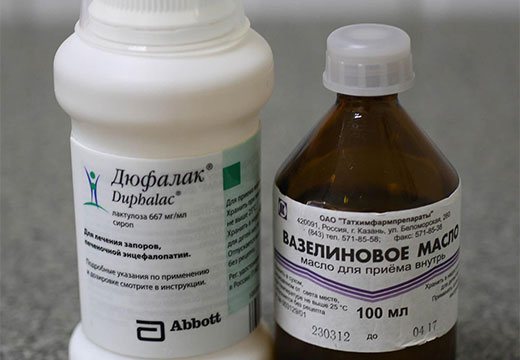
What means are prohibited to use?
The dominant principle in the treatment of constipation in newborns is the harmlessness of the drugs used.
- When a child switches from breastfeeding to mixed or artificial feeding, bowel movements may be delayed for several days, and the color and consistency of stool may change. The delay does not require treatment; the body needs to be given time to adjust to the new diet. Medicines can interfere with this process.
- It is forbidden to independently use laxatives for a newborn child for severe constipation, taken orally.
- Forget about home and folk methods of causing a bowel movement in a child by irritating the rectum with the tip of a thermometer or syringe. You cannot use candles made from laundry soap, or make various enemas from kefir, soda solution, or mother's milk. This can lead to injury to the rectum and disrupt the natural intestinal microflora.
- The use of microenemas and suppositories is carried out once, not on an ongoing basis. If the suppository did not help, the child was unable to defecate, do not continue self-treatment, call the pediatrician.
- If your child has a hard, swollen tummy, constipation for more than two days, or is lethargic and tearful, you should immediately consult a doctor. A diagnosis of intestinal obstruction is possible.
- Children under one year of age are prohibited from being prescribed saline or osmotic drugs, oil-based laxatives, and medications that are absorbed through the blood.
Folk remedies that you can give to your baby
To treat constipation in children, with the permission of a gastroenterologist, the following folk remedies are used:
- Senna and raisins: It is necessary to mix dry raw materials of senna herb in the amount of two standard packages and a glass of raisins.
- Pour the resulting mixture with two liters of water.
- Cook after boiling over low heat for thirty minutes.
- Then leave the resulting broth for two hours.
- Take the resulting remedy a quarter glass at night.

Senna herb has a gentle laxative effect
- Take dried apricots, raisins, and walnuts in equal parts, two hundred grams each, and pass through a meat grinder.
- Mix two parts of dry buckthorn bark and three parts of crushed mint leaves and pour a glass of boiling water.
When to see a pediatrician
If your baby has prolonged constipation or traces of blood in the stool, be sure to visit a doctor to rule out other diseases. In addition to a carefully collected medical history to determine the duration of the condition, the pediatrician will recommend an examination of the abdominal cavity, rectum, and anus. The microflora of the colon is examined for dysbiosis and a scatological test is carried out.
Prolonged constipation in a child can be a concomitant factor of some serious diseases:
- anemia;
- pathologies of intestinal patency, undeveloped nerve cells in one of the sections of the intestine, polyps, tumors;
- rickets:
- neurological problems;
- abnormalities in the functioning of the thyroid gland.
Possible complications
Prolonged constipation will become a trigger for the development of various complications. The microflora of the digestive system suffers, and dysbacteriosis occurs. Pathogenic microorganisms multiply in the colon. The result is that toxins accumulate, leading to intoxication of the body.
Frequent constipation leads to impaired blood circulation in the intestines and the onset of inflammatory processes in the body. The immune system suffers, the child begins to get sick often and for a long time.
One of the dangerous complications is inflammation of the rectum and sigmoid colon, secondary colitis.
The cause of inflammatory problems with the gastrointestinal tract are diseases of the rectum and anus, in particular fissures and hemorrhoids.
Complications can arise in the work of the overlying sections of the gastrointestinal tract in the form of gastritis, biliary dyskinesia, pancreatitis, and so on. They may be early symptoms of congenital hypothyroidism.
The effectiveness of therapy against constipation in children depends on the correct diagnosis. Self-medication by parents often does not lead to success. You should consult a pediatrician in time, who will make the correct diagnosis and prescribe adequate, comprehensive treatment.
In the first months of life, infants have not yet fully developed their digestive system, which is why they are prone to frequent dyspeptic disorders. A baby may often suffer from frequent loose stools, flatulence or constipation. With constipation, children cannot empty their bowels on their own, which leads to pain in the abdomen. Many parents, concerned about this condition of the child, are looking for the safest medications for constipation for babies.
The main causes of constipation in infants, young children (1–3 years), and adolescents
Digestion is the process of mechanical and chemical processing of food products in the digestive tract. At each age, the mechanism for breaking down nutrients into their component components has its own characteristics.
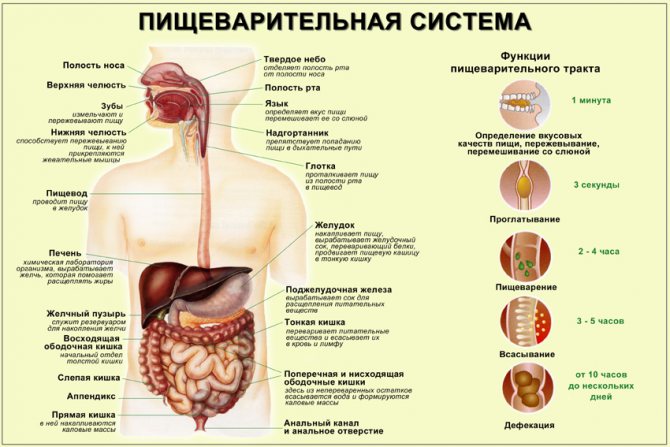
Digestion is a complex physiological process in which physical and chemical processing of food occurs
The process of digestion in infancy goes through a period of its formation. The enzyme proteins needed to break down essential nutritional components are immature, which is one of the causes of constipation. At this age, the intestinal microflora is formed from beneficial bacteria that help digest food. Often, such children, along with constipation, experience increased gas formation.
At an early age (1–3 years), children need a special diet due to the immaturity of enzymes. The consequence of a violation of the diet is stool retention. Insufficient consumption of plant fiber is the main factor contributing to the development of constipation.
In school and adolescence, diseases of the pancreas and gall bladder are common, which negatively affect the digestive process and lead to constipation.
In children of all age groups, stool retention can be caused by the death of normal intestinal microflora after taking antibiotics.
Causes of constipation in childhood - photo gallery
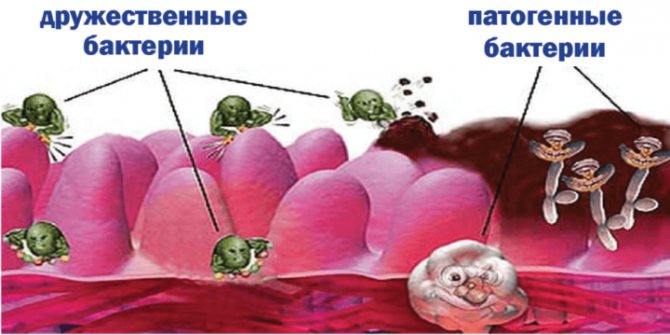
Beneficial intestinal bacteria are the basis of normal digestion
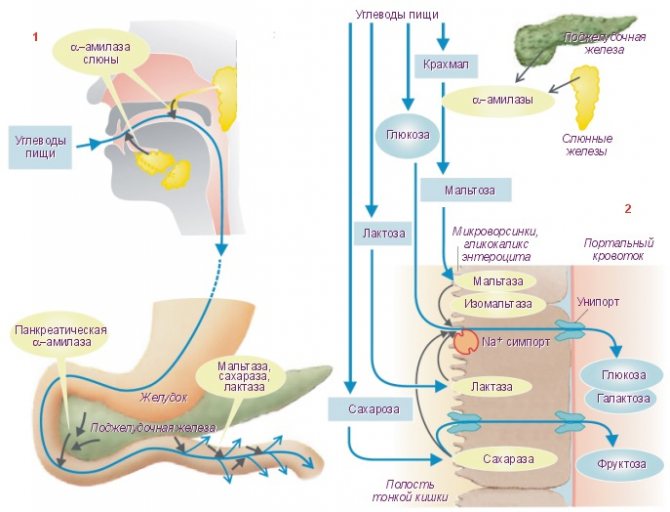
Lack of enzymes is one of the causes of constipation in a child.
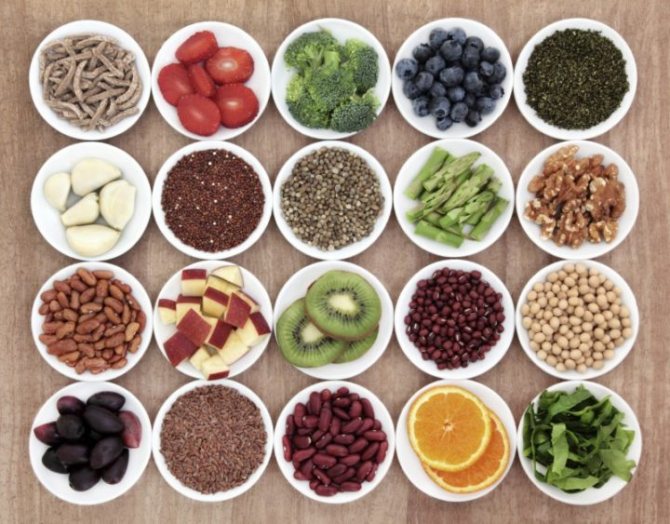
Lack of fiber in the diet leads to constipation
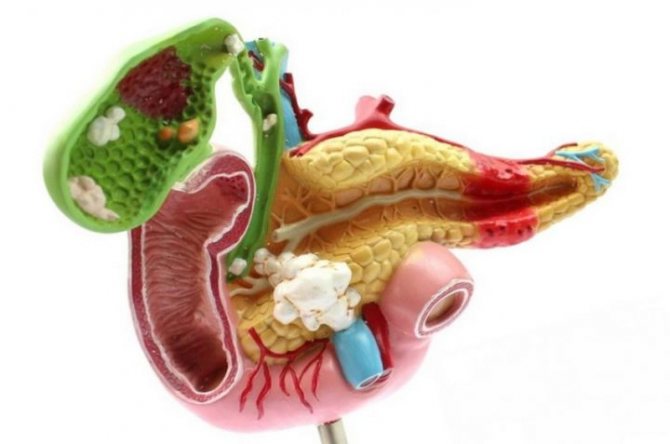
Gallbladder diseases negatively affect the digestive process and lead to constipation
Actions for constipation
To act correctly, you should know exactly what constipation is. Many parents think that if the baby has not had a bowel movement for 3-4 days, then he is constipated and should seek help from a doctor. However, this opinion is erroneous. For some babies, infrequent bowel movements are normal, and if the child feels normal, sleeps and eats well, there is no need to worry.
Constipation is a condition in which a child tries hard to get rid of feces accumulated in the intestines and cannot do so. When constipated, the baby behaves restlessly, cries, presses his legs to his tummy, and refuses to eat.
Difficulties in bowel movements can occur both daily and at certain intervals. This depends on the physiology of the child, as well as on what he is fed - formula or breast milk.
Constipation is characterized by the passage of hard stool, which may contain mucus or blood. During defecation, the child cries, strains heavily, his face turns red, he behaves restlessly, and this condition persists until the intestines are completely emptied.
If signs of constipation appear, the child’s diet should be reviewed and possible causes of this condition should be eliminated.
Pediatricians often recommend following these rules:
- When breastfeeding, correction of the mother's diet is required. It is not recommended to eat foods that have binding properties. It is necessary to introduce various plant components into the diet.
- The baby should be given a few teaspoons of boiled water. This is done in the intervals from feeding to feeding.
- The child should be active throughout the day: exercise and light tummy massage should be done daily. Such procedures have a positive effect on intestinal motility. Also, if there is constipation, it is recommended to place the baby on his stomach more often.
- Young children with constipation should be given a few drops of prune decoction or dill water.
If all possible methods have been tried and the desired result cannot be obtained, you should seek help from a doctor. The specialist will be able to assess the child’s condition and prescribe the safest remedy for the baby.
What is constipation - the main types of constipation in infants
Lack of bowel movements is a slow movement of masses in the intestines, which can occur at any stage of human development. This problem is common, including in newborns and children under one year old. However, not all mothers pay special attention to the problem. This often occurs due to ignorance of how often bowel movements should occur. Few people turn to a doctor for help on time, not knowing what the stool should be like in children under one year old. And sometimes, instead of going to the hospital, they try to treat it themselves, giving the child inappropriate laxatives, which cause severe distress and, as a result, dehydration.
The frequency of stool ejection in breastfed newborns should be identical to the amount of food intake. Constipation occurs in artificially born children for up to a year, if bowel movements do not occur independently at least once a day.
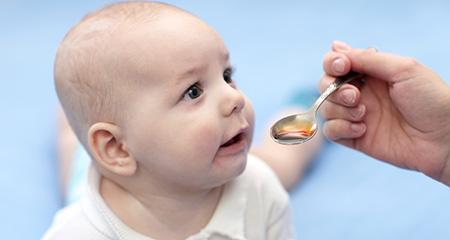
As in newborns, in children under one year of age, a decrease in the intensity of bowel movements may occur due to an undeveloped neuromuscular system. In newborns, stagnation is accompanied by severe pain in the tummy, tears and increased anxiety. Reducing the frequency of bowel movements can be organic or functional. Organic constipation is directly related to the defective development at the anatomical level of various parts of the tract, as a result of which there is no possibility of independent bowel movement. The most common manifestation of organic constipation occurs immediately after the birth of the baby.
There are several anatomical causes acquired by a child under one year of age that affect the functioning of the child’s body: tumor and polyp, adhesive disease after surgery.
Acquired anomalies are quite rare and appear in children under one year of age. Therefore, mothers should be attentive to the process of bowel movements of their infants in order to give laxatives in a timely manner.
Due to the peculiarities of the functioning of the digestive system, a decrease in the frequency of bowel movements can lead to changes in the muscle tone of the gastrointestinal tract. As a result of these changes, children experience spasms and stool cannot leave the colon quickly. Such spasms cause severe pain, so the baby may be capricious and lethargic.
What should you know about remedies for constipation in newborns?
The main point when treating constipation in a baby is his safety. When choosing a remedy for constipation for a newborn, you should not forget about the following:
- Before treating constipation, you need to make sure that the baby really has problems with bowel movements. Sometimes, for example, when changing nutrition from breastfeeding to artificial or mixed, a child may experience stool retention, which does not require treatment, but is an individual feature of the intestines. If in doubt, you should consult your doctor.
- It is prohibited to use systemic laxatives taken orally for newborns unless they have been prescribed by a specialist.
- You cannot use various folk remedies. Often, the baby’s parents begin to resort to artificial stimulation of the baby’s rectum with the tip of a syringe, or place homemade candles made from laundry soap or other means in the baby’s rectum, which, in their opinion, should relieve the baby of constipation. Such actions can lead to injury to the rectum or irritation of its mucous membrane.
- If a baby does not have bowel movements for 1-2 days, and at the same time gases do not leave the intestines, you should urgently contact a specialist. This situation can occur in case of intestinal obstruction, when urgent medical attention is required.
Laxative medications may:
- To combine water particles, which leads to an increase in the volume of intestinal contents - bulk laxatives.
- Cause irritation of the intestinal walls, which leads to increased peristalsis - irritating laxatives.
- Prevent the absorption of salts in the intestine, which leads to an increase in the volume of intestinal contents - osmotic or saline laxatives.
- Laxative oils and prebiotics (dietary fiber) are also used.
Treatment of childhood constipation
Constipation in children requires 6 mandatory treatment. Here are just a few reasons why.
Accumulated feces cause intoxication - poisoning with decay products3, 6, which begin to be absorbed back into the blood, the child becomes restless or lethargic, his appetite, mood, and physical activity decrease.
If there are intestinal dysfunctions, food is poorly digested3, 6. The body does not receive the necessary nutrients, vitamins, minerals, and this is one of the reasons for the decrease in protective forces and the development of anemia5, 6.
Long-term absence of stool causes constant discomfort, abdominal pain, and the physical and mental development of the child can be disrupted3, 6.
Due to the impossibility or difficulty of controlling urges and defecation, encopresis is likely to develop3, 4, 6 - spotting, fecal incontinence. With it, small particles of feces involuntarily come out at any time, staining clothes3, 6. Encopresis becomes a powerful stress, aggravating psychological problems.
If feces have not been excreted for a long time, it stretches the intestinal walls, which increases the risk of developing rectal fissures, hemorrhoids, bleeding, and inflammation of the large intestine3, 6.
The goal of treatment is to restore peristalsis, normalize the density and quantity of feces, and the frequency of bowel movements2, 4, 6
The treatment regimen and what exactly can be given to the child for constipation is prescribed by the doctor, based on age, nutritional characteristics, growth and development, the presence of other diseases, complaints, and the duration of the condition. Treatment consists of 1, 2, 6:
- Correction of an existing disease.
- Development of a therapeutic diet.
- Organizations of a healthy lifestyle, including physical therapy.
- Drug therapy.
The examination revealed that the child is constipated: what to do? If the cause is associated with any disease, then measures will be taken to treat it and at the same time a method will be selected to normalize the frequency of stool, taking into account the disease and other characteristics of the body.
Therapeutic diet
One of the first therapeutic measures is diet4, 6. Proper nutrition makes stool softer, facilitates its passage, and stimulates peristalsis. If there is no pain during defecation, then the fear of having to go to the potty (toilet) will decrease or disappear.
Nutrition must correspond to the age and needs of the growing body. Breastfeeding should be continued, and for children on artificial or mixed feeding, the doctor will help you choose therapeutic and preventive formulas that contain additives that normalize stool1, 4, 6.
For complementary feeding, foods that stimulate peristalsis are recommended: pumpkin, squash, zucchini, Brussels sprouts and cauliflower, apricot puree, prunes1, 2, 6.
And if a child a year or older has constipation, what should he do with his diet?
You need to give a lot of clean water to drink - but not compotes or juices. Water helps soften accumulated feces and stimulates peristalsis1, 2, 6.
Bran, wholemeal bread, oatmeal and buckwheat support normal intestinal motility and accelerate the movement of feces1, 2, 6.
The diet must include fresh vegetables and fruits, foods high in fiber. However, sweet apples, bananas, blueberries, berry and fruit jelly are not given because of their astringent properties and ability to make feces dense1, 2, 6.
It is necessary to reduce to a minimum (or better yet eliminate) the consumption of sweets, flour products, and refined foods that slow down the intestines 1, 2, 6.
You should give up whole milk and cereals containing it, especially semolina and rice - they make stool thick and peristalsis sluggish1, 2, 6.
Cocoa, black and green tea, chocolate, coffee reduce intestinal activity and promote stool retention1, 2, 4, 6.
Peas and beans, white cabbage, grapes, pears, and fresh onions are not recommended. These vegetables provoke gas formation and abdominal pain1, 2, 4.
As a basis for rational nutrition, it is possible to prescribe one of the therapeutic diets - table No. 3 or No. 4 according to Pevzner1, 2, 4, 6.
Daily regime
A daily routine, the habit of doing everything necessary every day, helps to normalize the functioning of the autonomic nervous system, instilling the need for regular bowel movements at approximately the same time.
In the morning on an empty stomach, while still in bed, the child should be given 50 to 150 ml of clean drinking water at room temperature to drink, and after 15-20 minutes have breakfast - just enough time to get dressed, wash, and do exercises1, 2, 4.
After eating, you should try to induce a bowel movement, if the doctor allows, then with auxiliary means - an enema, a laxative. Parents can develop a system of rewards for successful visits to the toilet, but there is no need to scold for failure1, 3, 4, 6.
Children should move according to their abilities and age, play active games, and take walks. Cycling, skating and skiing, swimming, and playing with a ball are useful. A doctor or exercise therapy specialist will recommend suitable gymnastics or physical therapy exercises 1, 2, 4, 6.








